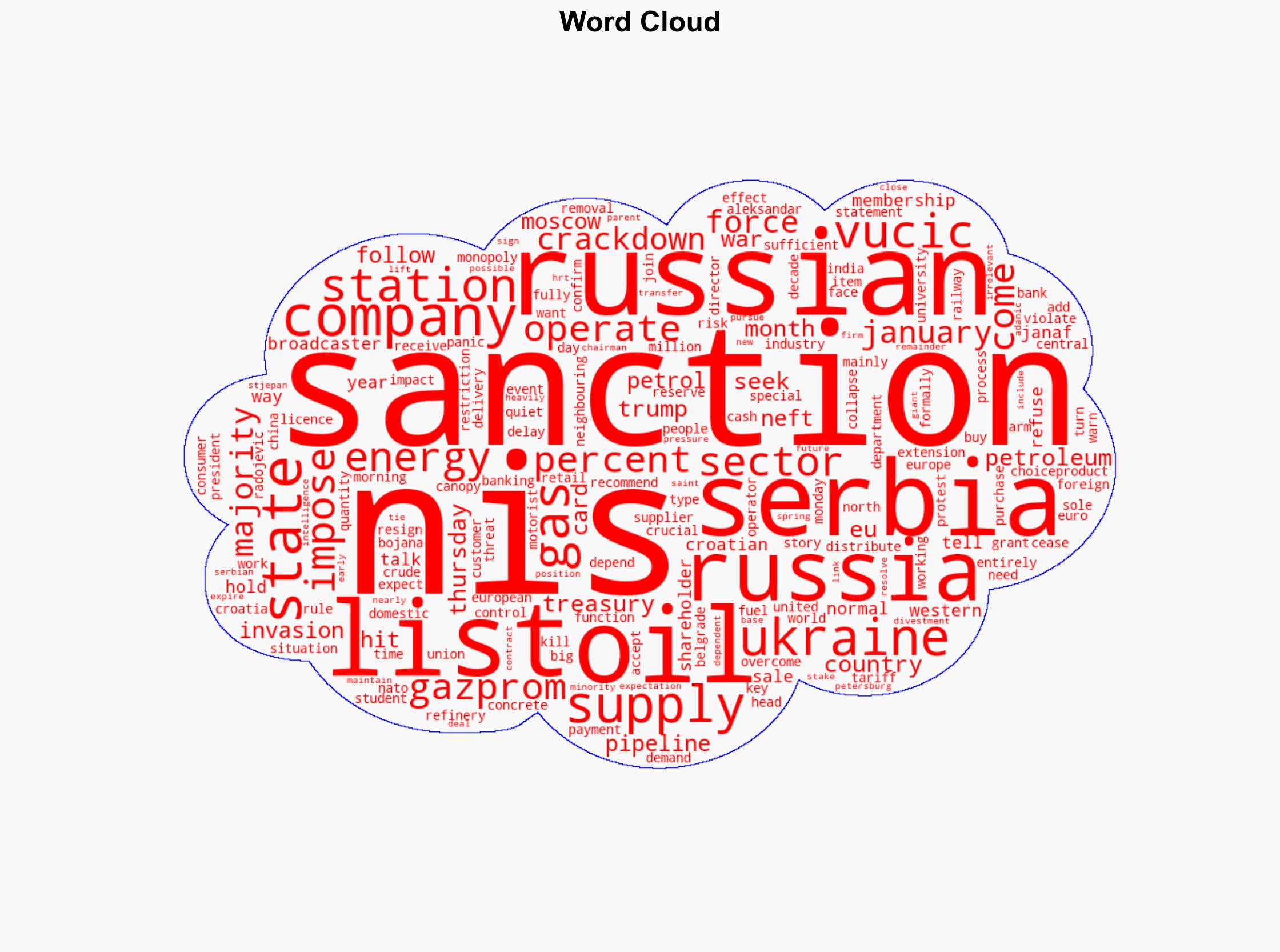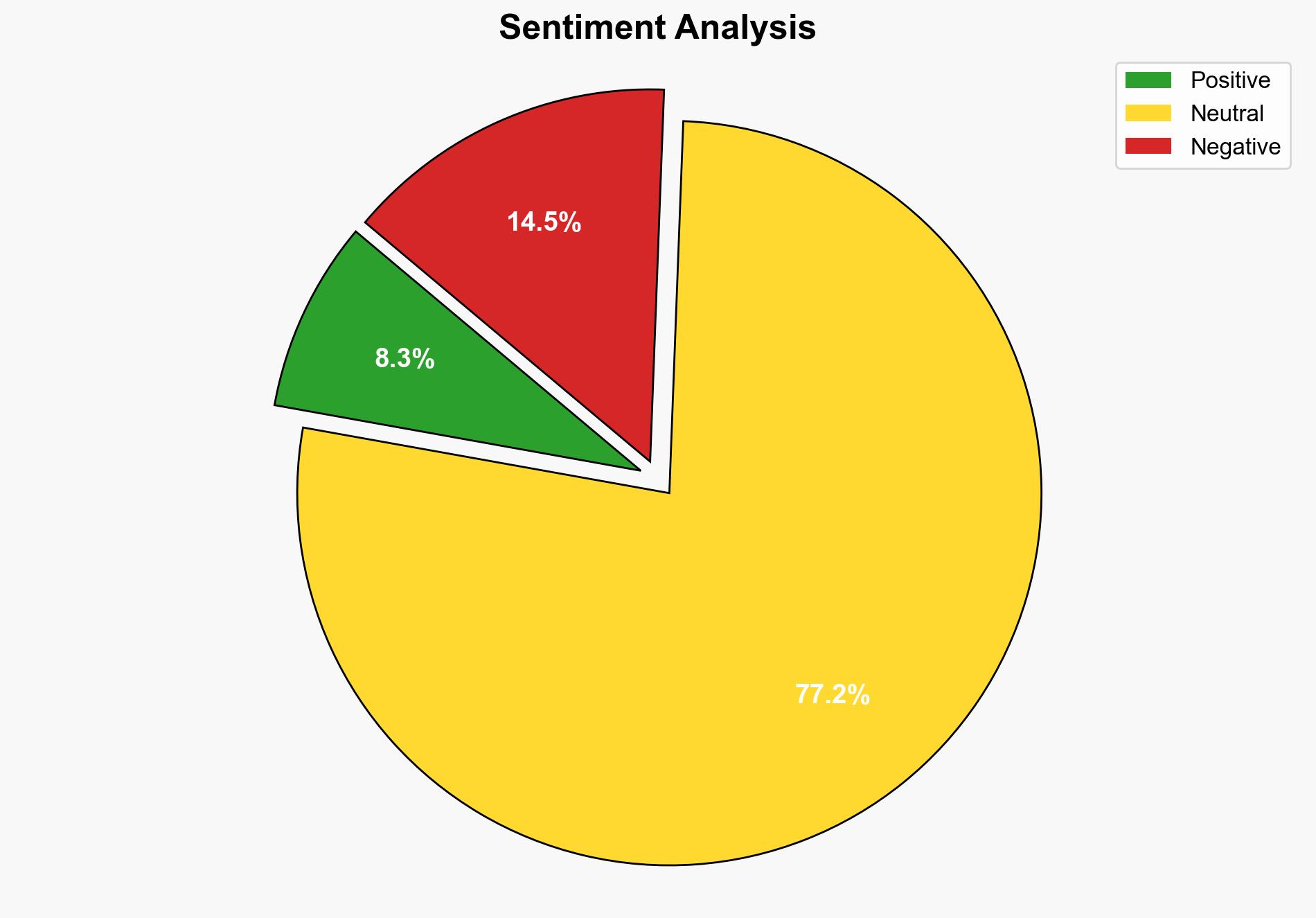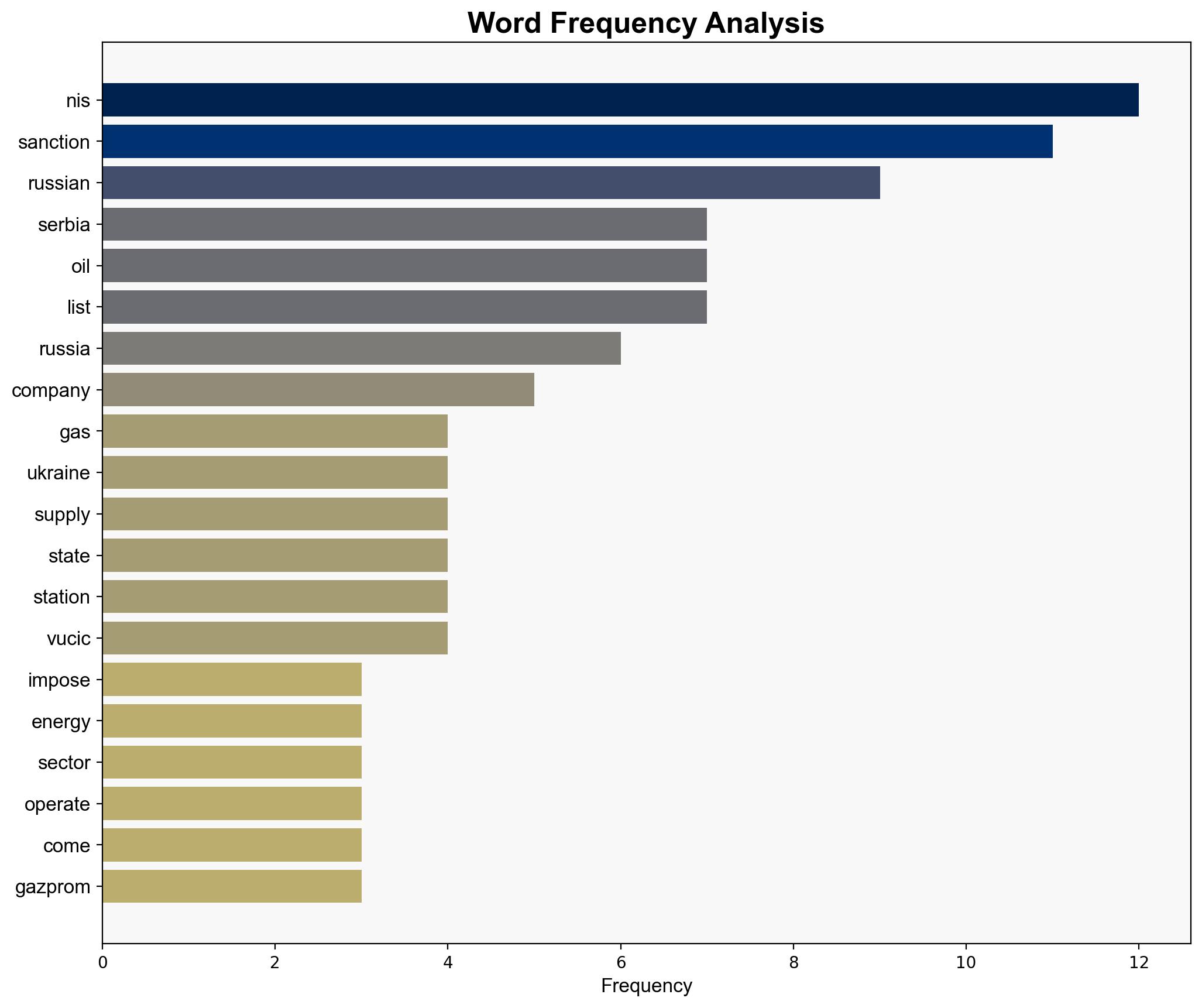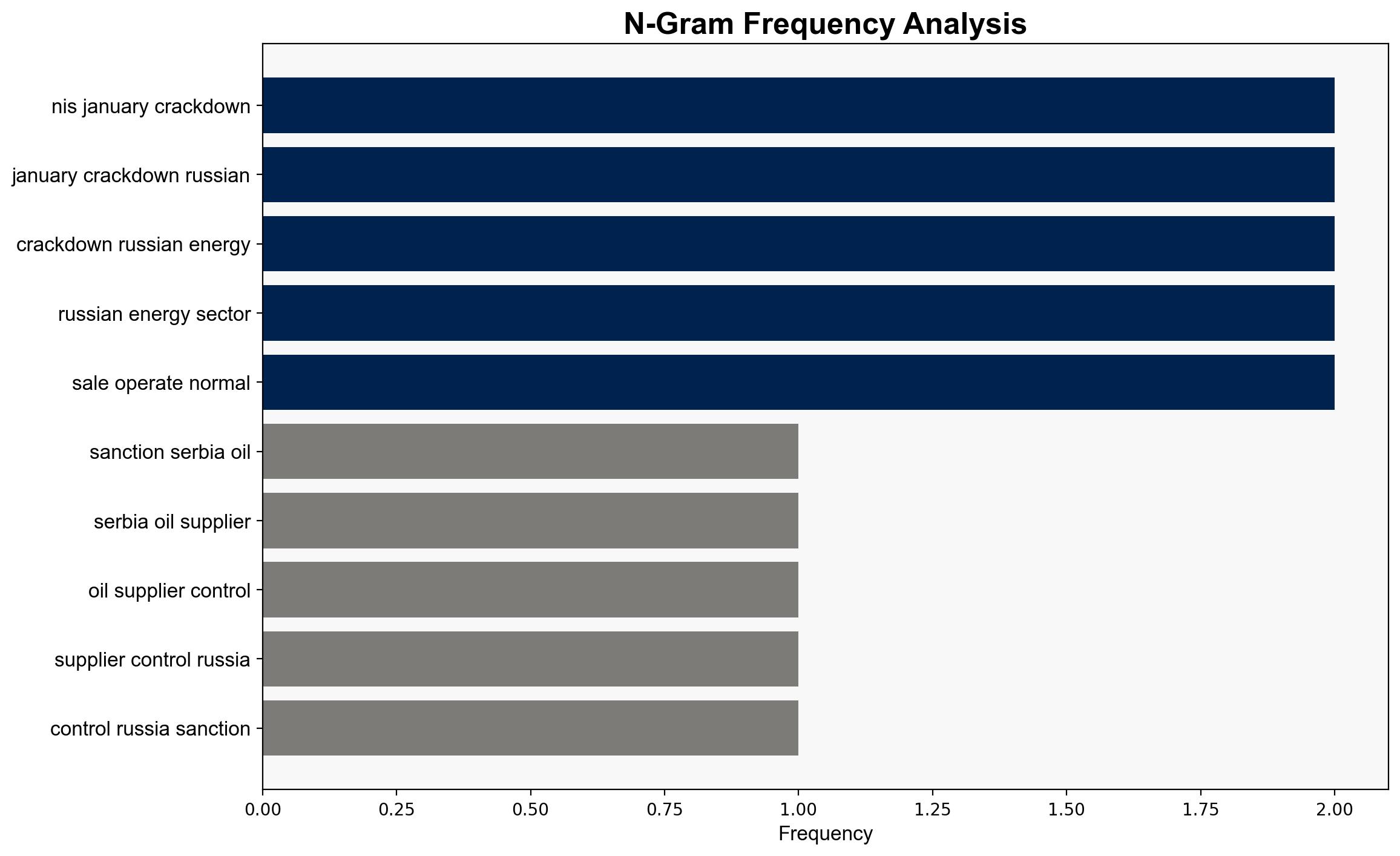US sanctions Serbias main oil supplier controlled by Russia – Al Jazeera English
Published on: 2025-10-09
Intelligence Report: US sanctions Serbia’s main oil supplier controlled by Russia – Al Jazeera English
1. BLUF (Bottom Line Up Front)
The imposition of US sanctions on Serbia’s main oil supplier, NIS, which is controlled by Russia, is likely to strain Serbia’s energy security and its geopolitical positioning between the West and Russia. The most supported hypothesis suggests that Serbia will seek to balance its energy needs and EU aspirations by negotiating alternative energy sources while maintaining ties with Russia. Confidence level: Moderate. Recommended action: Monitor Serbia’s energy negotiations and potential shifts in foreign policy alignment.
2. Competing Hypotheses
1. **Hypothesis A**: Serbia will increase its alignment with Western policies, including potential sanctions on Russia, to secure EU membership and diversify its energy sources.
– **Supporting Evidence**: Serbia’s formal pursuit of EU membership; discussions on divesting Russian shareholders.
– **Contradictory Evidence**: Serbia’s heavy reliance on Russian gas and refusal to join Western sanctions against Russia.
2. **Hypothesis B**: Serbia will maintain its current stance, balancing between Russia and the EU, by seeking exemptions or alternative arrangements to continue receiving Russian energy supplies.
– **Supporting Evidence**: Serbia’s dependence on Russian gas; ongoing negotiations for new energy deals with Russia.
– **Contradictory Evidence**: Pressure from the EU and potential economic impacts from sanctions.
Using ACH 2.0, Hypothesis B is better supported due to Serbia’s current energy dependency and geopolitical strategy of non-alignment.
3. Key Assumptions and Red Flags
– **Assumptions**: Serbia can secure alternative energy sources; EU membership incentives outweigh Russian energy benefits.
– **Red Flags**: Potential underestimation of Serbia’s economic resilience; overreliance on EU’s willingness to offer energy alternatives.
– **Blind Spots**: Internal political dynamics in Serbia that could shift its foreign policy; potential for increased Russian influence through non-energy means.
4. Implications and Strategic Risks
– **Economic Risks**: Sanctions could disrupt Serbia’s energy supply, leading to economic instability.
– **Geopolitical Risks**: Serbia’s balancing act may strain relations with both the EU and Russia, leading to diplomatic isolation.
– **Escalation Scenarios**: Increased internal unrest due to energy shortages; potential for Serbia to pivot towards Russia if EU negotiations falter.
5. Recommendations and Outlook
- Encourage dialogue between Serbia and EU energy providers to secure alternative energy sources.
- Monitor Serbia’s domestic political climate for shifts that could affect foreign policy decisions.
- Scenario Projections:
- **Best Case**: Serbia successfully diversifies its energy sources and aligns more closely with EU policies.
- **Worst Case**: Serbia faces energy shortages, leading to economic turmoil and increased Russian influence.
- **Most Likely**: Serbia continues to balance its relations with both the EU and Russia, seeking exemptions and alternative arrangements.
6. Key Individuals and Entities
– Aleksandar Vucic
– Gazprom Neft
– NIS (Naftna Industrija Srbije)
– Janaf (Croatian pipeline operator)
7. Thematic Tags
national security threats, energy security, geopolitical strategy, Serbia-Russia relations, EU integration





